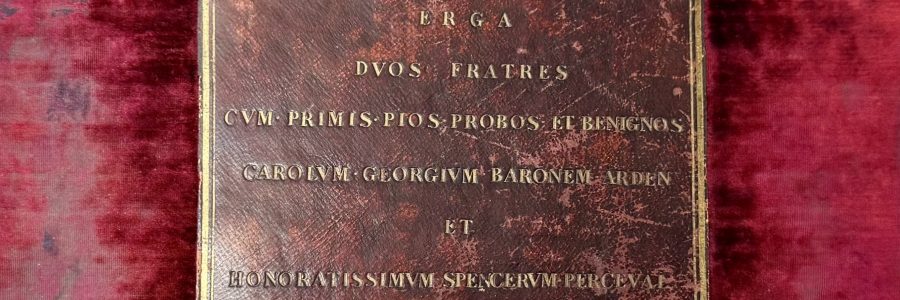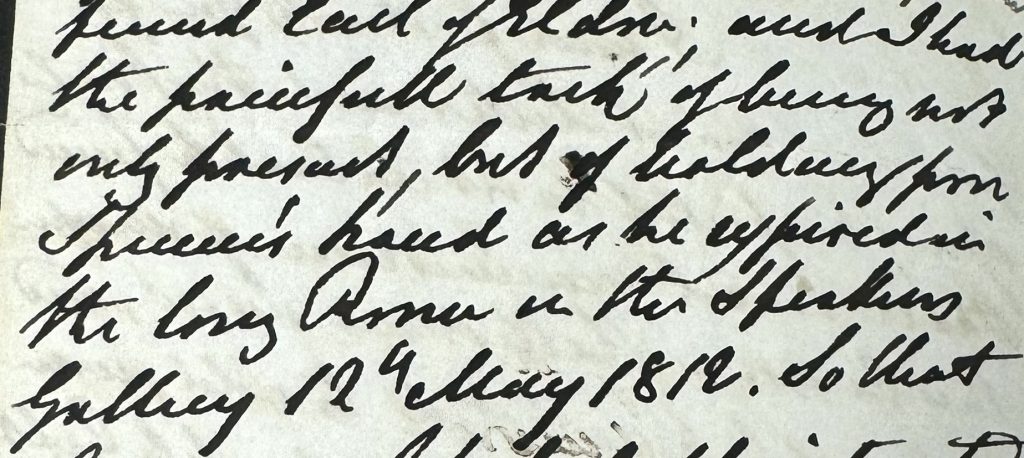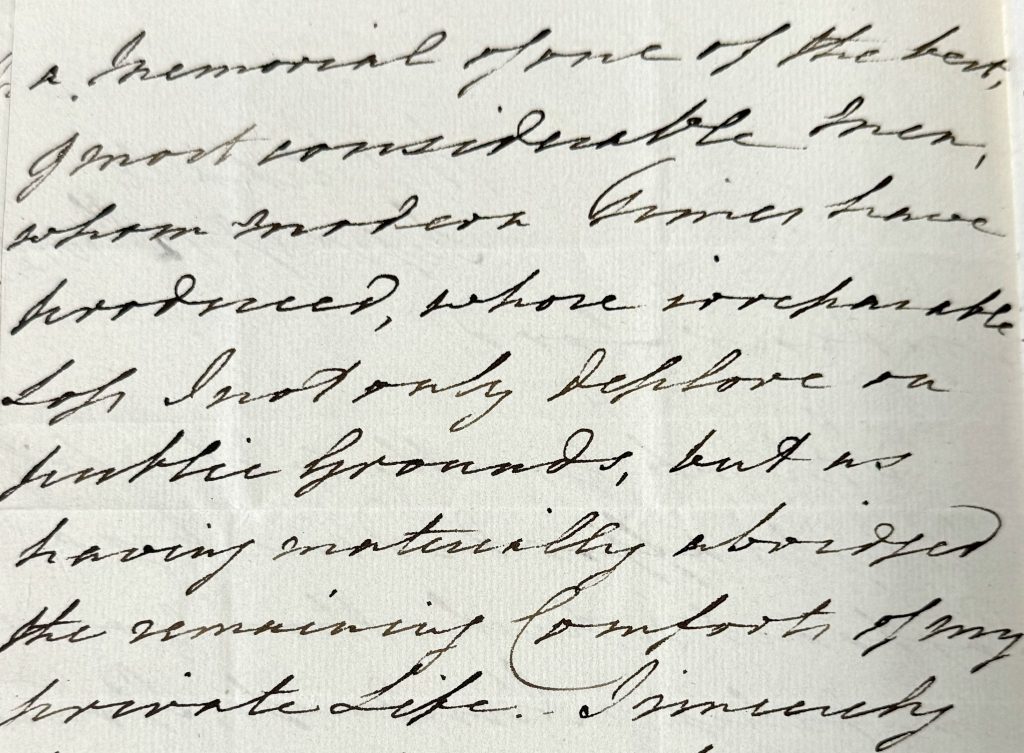
Tributes to two brothers
Guest post by Jonathan Spain, former member of the Manuscripts Department, now a volunteer cataloguer.
The Library’s Department of Archives and Modern Manuscripts has issued an online catalogue of its MS Add.10198 on the ArchiveSearch portal. This is a single bound volume containing letters of thanks and condolence relating to the death (by assassination) of the Prime Minister, Spencer Perceval, in 1812 and of his brother Charles George Perceval, second Baron Arden, in 1840.
It bears the Latin title ‘Testimoniae reverentiae erga duos fratres cvm primis pios probos et benignos Carolvm Georgivm Baronem Arden et Honoratissimvm Spencervm Perceval collegit vidva prioris’ (‘Testimonies of respect for two brothers among the most pious, honest and kind, Charles George, Baron Arden and the Honourable Spencer Perceval, collected by the widow of the former’).The volume was acquired by the Library since it holds other papers relating to Spencer Perceval, MS Add.8713, and Perceval family papers, MS Add.10172.
Both series of letters were written in response to the receipt of a gift of a print of a mezzotint engraving, based upon oil paintings of Spencer Perceval and his brother. Following the assassination of Spencer Perceval, Lord Arden commissioned two portraits by the artist Charles Turner, held by the National Portrait Gallery. A mezzotint engraving of the second (NPG 4) was produced and published by George Francis Joseph (NPG D40155). Lord Arden sent 37 prints of this to a select group of Spencer Perceval’s political colleagues, to others with whom he had professional connections, or close friends.
Following the death of Lord Arden in 1840, his wife Margaretta commissioned Thomas Goff Lupton to produce an engraving after a portrait by Henry Peronnet Briggs. A copy of the engraving resides at the National Portrait Gallery (NPG D7087). Lupton was the first engraving artist to successfully adopt soft steel plates in place of copper, enabling larger print runs without losing quality or clarity. As a consequence Lady Arden sent out over a hundred copies of the engraving to minor royals, other aristocrats, landed gentry, bishops and other clergy, family, friends and professional colleagues, in commemoration of her late husband.
This collection of letters was, according to an inscription at the front of the bound volume, arranged on Lady Arden’s behalf by one Henry Gough at Lambeth Palace, where he was engaged in repairing the archiepiscopal library. Those letters relating to Lord Arden (1841-2) have been inserted at the front of the volume. Lady Arden had the letters received by her husband, following the assassination of his brother in 1812, added afterwards at the back of the volume. Gough produced an index to the two collections of letters and the volume was dedicated as a gift in perpetuity by Lady Arden to her children.

Ernest Augustus, Duke of Cumberland and King of Hanover, recalls holding the hand of the assassinated Prime Minister Spencer Perceval as he died, in a letter to Lady Arden, 7 August 1841. MS Add.10198/1/1.
Apart from what it tells us about the commemoration of lives and rituals surrounding death in late Georgian and early Victorian society, the letters received by Lady Arden have much to say about the network of family and kinship connections which existed between wealthy landed families and of their relations with other social classes, in particular the Church and professions. The gift of a copy of the print conveyed a degree of social acceptance which the recipients were all careful to acknowledge.
In relation to Spencer Perceval, the eulogies which Lord Arden received from recipients of the earlier print provide striking testimony to the very high regard in which he was held by his contemporaries, both as a man and a political leader. In his letter to Lord Arden, the Statesman Henry Addington, Viscount Sidmouth, wrote of his ‘melancholy delight’ in receiving a memorial ‘of one of the best, and most considerable men, whom modern times have produced’.

One Prime Minister pays tribute to another : Lord Sidmouth describes his sense of loss at the death of Spencer Perceval, in a letter to Lord Arden, 12 September 1812. MS Add.10198/3/33.
